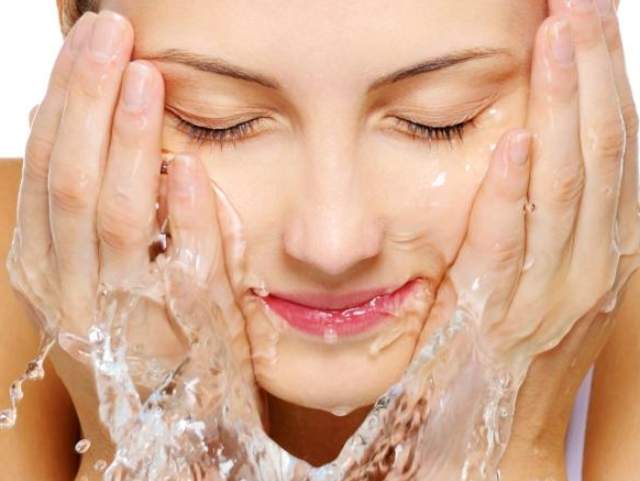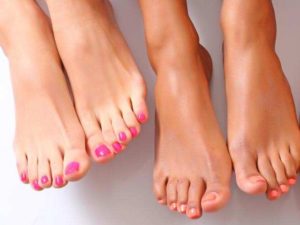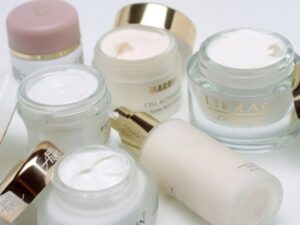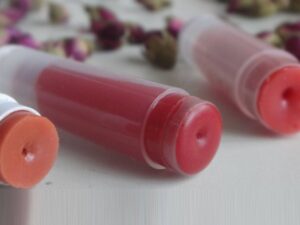While we are willing to spend good money on shampoos, anti-ageing creams and skin lightening serums, we do not consider soaps and cleansers to be an important part of our beauty ritual. How much can a cleanser do anyway??
Soap or face wash? Foam or gel? Store-bought or hand-made? Does it even make a difference? Is cleansing really an important step towards good skin? Is it worth splurging on a face wash, when it is only going to be on our skin for a minute?
Cleansing is a very basic yet important requirement for healthy and glowing skin. And here’s why..
1) Cleansing removes dirt, grime, excess oil and make up.
2) It allows your skin to breathe and prevents clogging up of pores and formation of blackheads and whiteheads. It allows skin oils to seep through to the surface, instead of building up beneath your pores and inviting bacterial overgrowth.
3) As we grow older, our skin does not self-exfoliate as well. Cleansers and scrubs help wash away dead skin cells.
4) It allows better penetration of skin care products like serums and moisturizers.
5) The right face wash can help your skin maintain optimum pH levels, which is necessary to retain moisture and remain hydrated.
6) Cleansing is essential for those who suffer from acne. And the right cleanser can help a person suffering from Eczema or Rosacea.
7) Cleansing is an emotional experience as well, where one feels refreshed after ‘washing away the rigours of the day’. Cleansing is an important ritual before offering prayers, in most customs and religions. Bathing and cleansing are a source of sensory pleasure as well.
When you skip washing your face with an appropriate face wash, your skin will begin to darken, turn dry, flaky, thick and leathery. Moisturizers will not hydrate your skin long enough. Open pores begin to enlarge and you might notice the appearance of acne and blemishes.
Finding the right face wash for your needs might take some trial and error. Most people need different cleansers for the face and body. Your face may be oily while your body might be dry. For others, the skin on their chest and back might be thick and oily while the face may be dry and sensitive. Knowing your skin type is an important step towards picking the right face wash. Consult a dermatologist for guidance.
If you have dry skin – Select a soap-free cleanser like Cetaphil cleansing lotion. Or a cream based face wash like Avene Gentle milk cleanser. Cream based cleansers are also effective in make-up removal when used with a soft cotton pad. Avoid toner, or face washes with high alcohol content. Select a soap which contains ingredients like milk cream, shea butter, coconut oil or aloe vera. Look for products that contain the word ‘hydrating’ or ‘replenishing’ on the label. Exfoliate once or twice a week with an apricot or oat-meal containing scrub.
For oily skin – This kind of skin is more prone to acne and open pores. Select a gel or foam based face wash like the Sebamed Clear Face foaming face wash. If you have acne as well, pick a face wash that contains Salicylic Acid or Benzoyl Peroxide. Look for products that carry the terms ‘exfoliating’, ‘keratolytic’ (skin dissolving) or ‘non-comedogenic’ on the label. Use a toner soon after cleansing. Wipe it across your face using a cotton pad. You can also use salicylic acid containing face-wipe pads, for all the times when water and face wash are not within reach. The Neutrogena Rapid Clear Treatment Pads, for instance. Hand-made soaps containing charcoal work well on such skin. It is important to use a scrub twice a week. Look for a scrub that contains sea salt or walnut.
If you have normal skin – You are blessed because your skin is not very difficult or demanding. However, soaps for dry skin might leave your skin oily, and soaps for oily skin might leave your skin dry. You can chose Herbal soaps, or liquid cleansers like Neutrogena Liquid, followed by a good toner. Choose a Syndet over a Soap, for example Dove soap, which isn’t actually a soap.
For combination skin – This skin is overall healthy and easy to maintain. Use Glycerine and/or Rose water based soaps or cleansers. Gel or foam based cleansers work well on your skin. Micellar water, like the Bioderma Sensibio H2O is perfect for your skin type. It works as a cleanser as well as make-up remover. You can also use fragrance-free cleansing wipes.
If you have sensitive skin – Ideally you might need to consult a dermatologist before choosing your face wash. ‘Dove Sensitive’ soap is easily available over-the-counter and is relatively inexpensive. Look for cleansers which have the terms ‘hypoallergenic’ or ‘for intolerant skin’ on the label. Look for a pH balanced formulation. Select a product that is fragrance-free and paraben free.
If you have dry skin with acne – Choose an anti-bacterial face wash that contains Cetrimide. Lactic acid containing face washes are a good fit as well.
If you have oily and sensitive skin – Use a soap that contains Bentonite Clay or Kaolin Clay. The Dermaceutic Advanced Cleanser containing Xylitol and Urea is a good choice. Avene Cleanance Gel is another great example. Choose natural ingredients like tea tree oil, apple cider vinegar, citric acid or rosemary oil in your face wash or hand-made soap.
If you have tanned skin – Use a face wash which contains AHAs (alpha hydroxyl acids) like glycolic acid or lactic acid. Natural ingredients like turmeric, saffron, orange peel or berry extracts would work well if you wish to seek a soap-maker for customized soaps.
If you are outdoorsy or suffer from excessive sweating and body odour – Use antibacterial or deodorizing soaps and body washes. Hand-made soaps made of turmeric, neem oil, geranium oil and gram flour are excellent choices as well.
A lot has been said about home-made soaps and their natural goodness. Soap makers are naturally vitriolic against commercially available cleansers and their ‘harmful, cancer-causing and hormone-disrupting chemicals which are poisonous to your skin as well as the environment’. This venom is in fact, driven by their own business interests. It is not possible to make soap without lye, which is a highly caustic alkali, although the ‘saponification’ process renders it safe. The Food & Administration authorities only approve ‘melt & pour’ soaps made from hot process, for commercial sale. These soaps are more popular due to their translucent appearance, but these do contain synthetic chemicals and are not “all natural”. Cold compress soaps can be prepared using only natural ingredients. However, most hand-made soaps contain essential oils and fragrances which can irritate sensitive skin. Many others do not fulfil the label claims as they are not tested in any lab. For instance, a soap claiming to be made of lavender, might in fact only contain lavender scented oil. So buyers beware.
What is the correct way to use a face wash? Wet your face and hands. Take a small amount of the cleanser – cream, gel, foam or lotion, on one palm, rub it between both palms, and gently massage it into your skin in upwards and outwards movements. Wait a few seconds to let the cleanser do its job, then rinse off and gently pat dry.
On a parting note, I would advise all readers to consult an experienced dermatologist if you are not able to correctly identify your skin type and find a suitable cleanser for yourself. There is no such thing as THE perfect soap or cleanser. Despite expert medical advice, if you suffer from sensitive skin, it might take some trial and error before you find the perfect cleanser for your skin.




